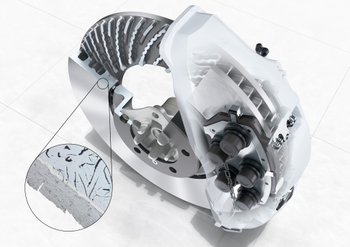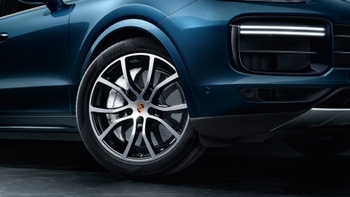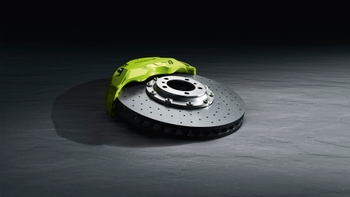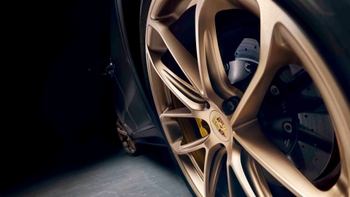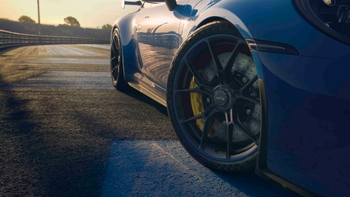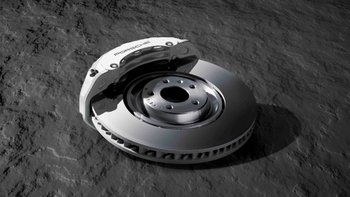
Metadata indicates that one piece of technology literally makes or breaks a model on or off the track: brakes. Let’s find out how Porsche Ceramic Composite Brakes and Porsche Surface Coated Brakes pull out all the stops.
Motorsport technology often jumps from the track to the road and, more often than not, Porsche is the perfect model to bridge the gap between these two environs.
Porsche has been a pioneer of several varieties of braking systems but two in particular are industry spectacular: The Porsche Ceramic Composite Brakes (PCCB) and the Porsche Surface Coated Brakes, (PSCB).
What are PCCBs?
Brake discs are generally manufactured of cast iron but PCCBs are produced by shooting silicon resin through small grains of carbon fibre, which is then moulded into brake discs with regular holes added radially to create cooling vents. Intense pressure is added to the mould heated to 1,700 degrees Celsius and then cooled. The whole process takes approximately twenty days before the material reaches its final form, silicon carbide. The raw disc is then bound with a ceramic coating and painted.
These brakes were originally used for aircraft in the 1970’s because silicon carbide has a diamond like crystalline structure which makes them incredibly durable and hard. In 2001, the Porsche 911 GT2 became the first production car to feature carbon ceramic brakes.
The diamond-like interior, coupled with the ceramic coating improves the friction coefficient, and makes them virtually immune to corrosion. Even in cold and icy areas where salted roads can pose huge risks to iron components, PCCB are designed to last the entire lifetime of your Porsche.
Don’t stop me now
PCCB’s are 50% lighter than their conventional steel counterpart, which results in better road-handling, greater agility and increased comfort particularly on uneven roads. With a lightweight, hard-wearing design and sporty reputation, PCCBs are an attractive perk for a huge number of ‘gearheads’. However, because of the complex production process, the price tag of PCCB’s makes them impractical for the average driver. That’s why Porsche developed the Porsche Surface Coated Brakes, (PSCB).
What are PSCBs?
PSCBs are a hybrid technology that successfully married the high-performance functionality of Porsche Ceramic Composite Brakes (PCCB) with the conventional gray-iron brakes. The result is a brake more financially accessible to the average consumer while still offering formidable braking power and much less wear.
Costing about a third as much as the PCCBs, PSCBs are built by laser processing a galvanised gray-iron disc before shooting tungsten carbide particles at the disc at supersonic speeds. With the special coating applied the brake rotors are 10% harder, last 30% longer, and produce 90% less brake dust.
Isn’t It Iron-ic
The Porsche Cayenne Turbo, now standard with PSCBs, comes to a full stop from 155 mph over six and a half feet sooner than with standard iron brakes. After continued use, the corrosion-resistant coating takes on a mirror finish as the pads polish the tungsten carbide surface.
Porsche also executed brutal high-speed stops to measure brake fade. The tests took both iron rotors and surface-coated rotors up to nearly 1,200 degrees Fahrenheit and found PSCBs experienced half as much fade as iron brakes.
As a brand steeped in motorsport tradition and with a decades long racing pedigree, race track technology feels at home in every Porsche model. Visit us today to find out how your Porsche can break free with these powerful braking systems.
